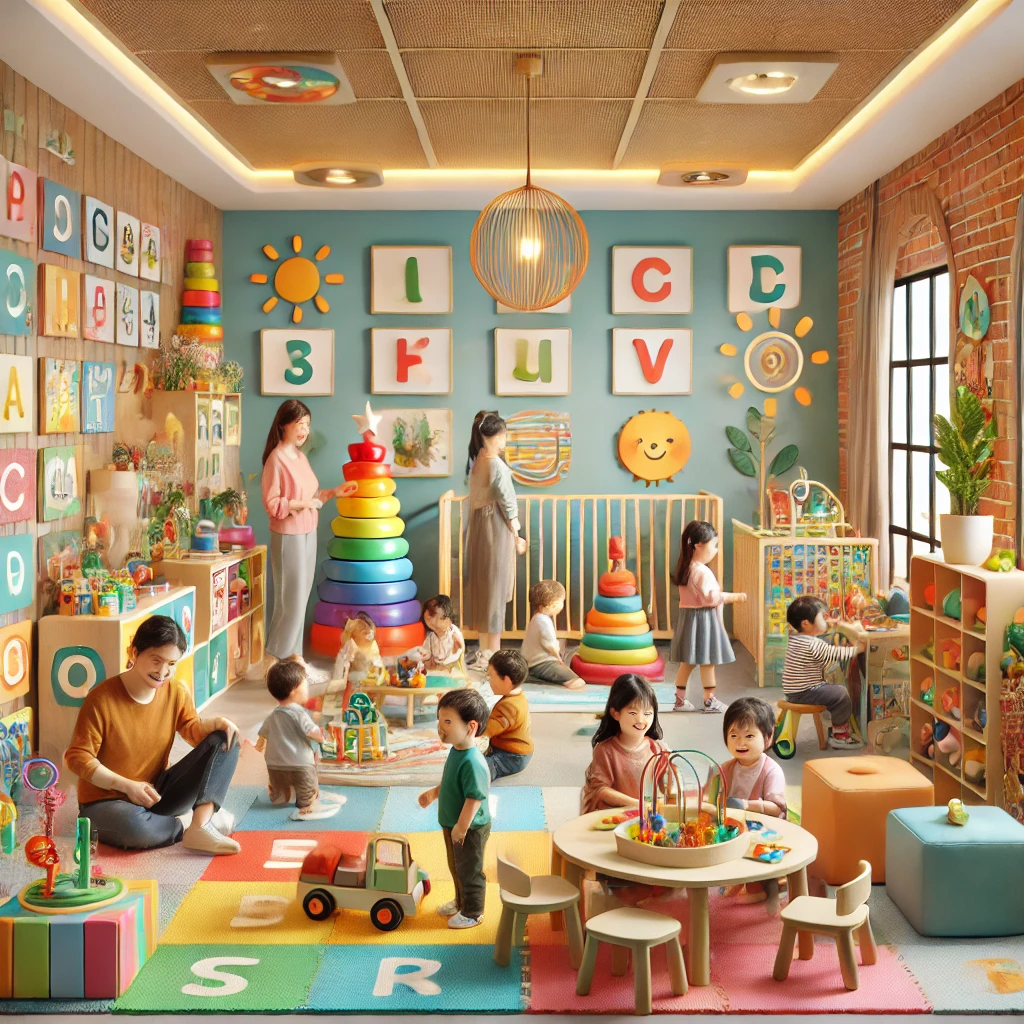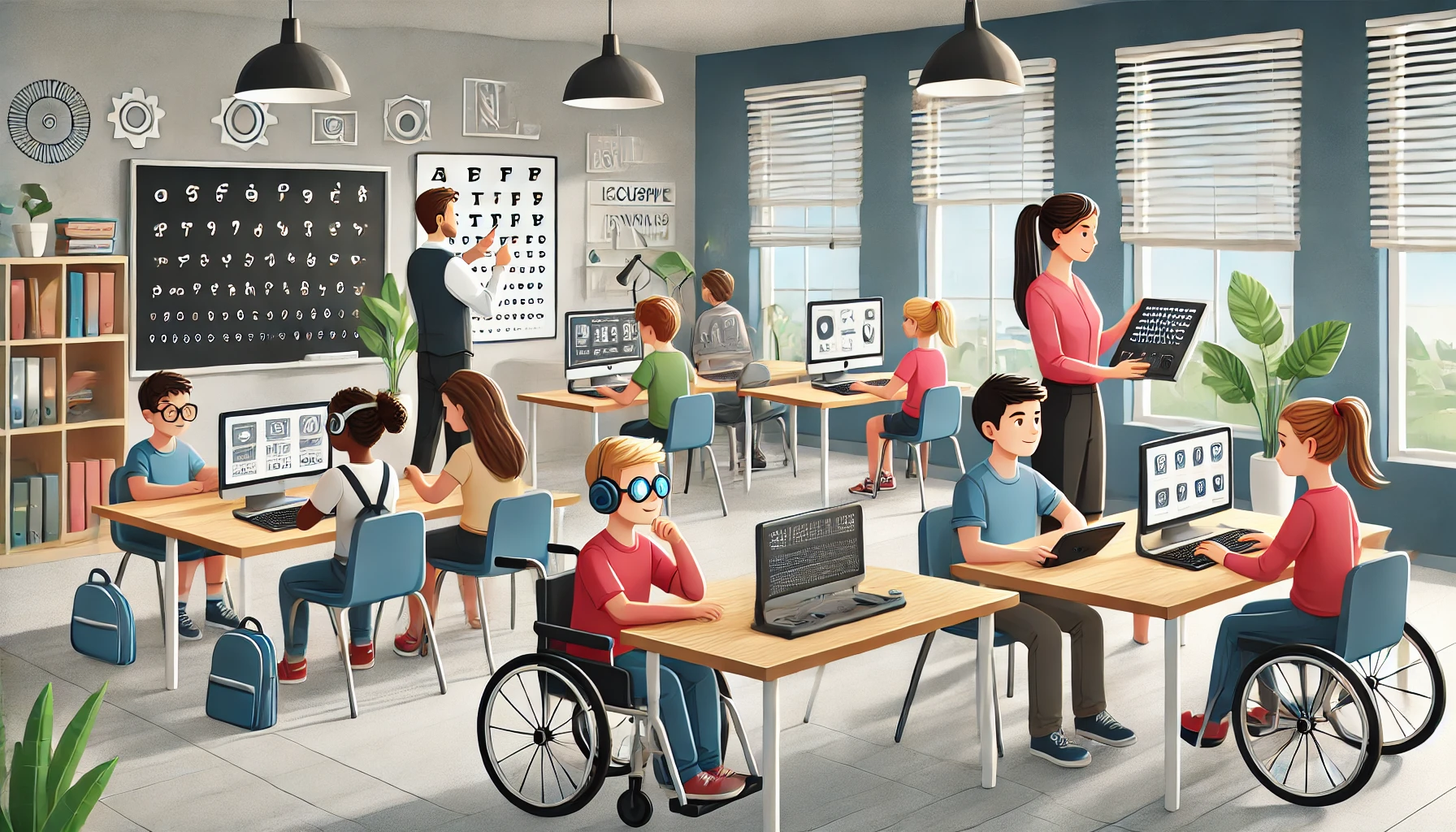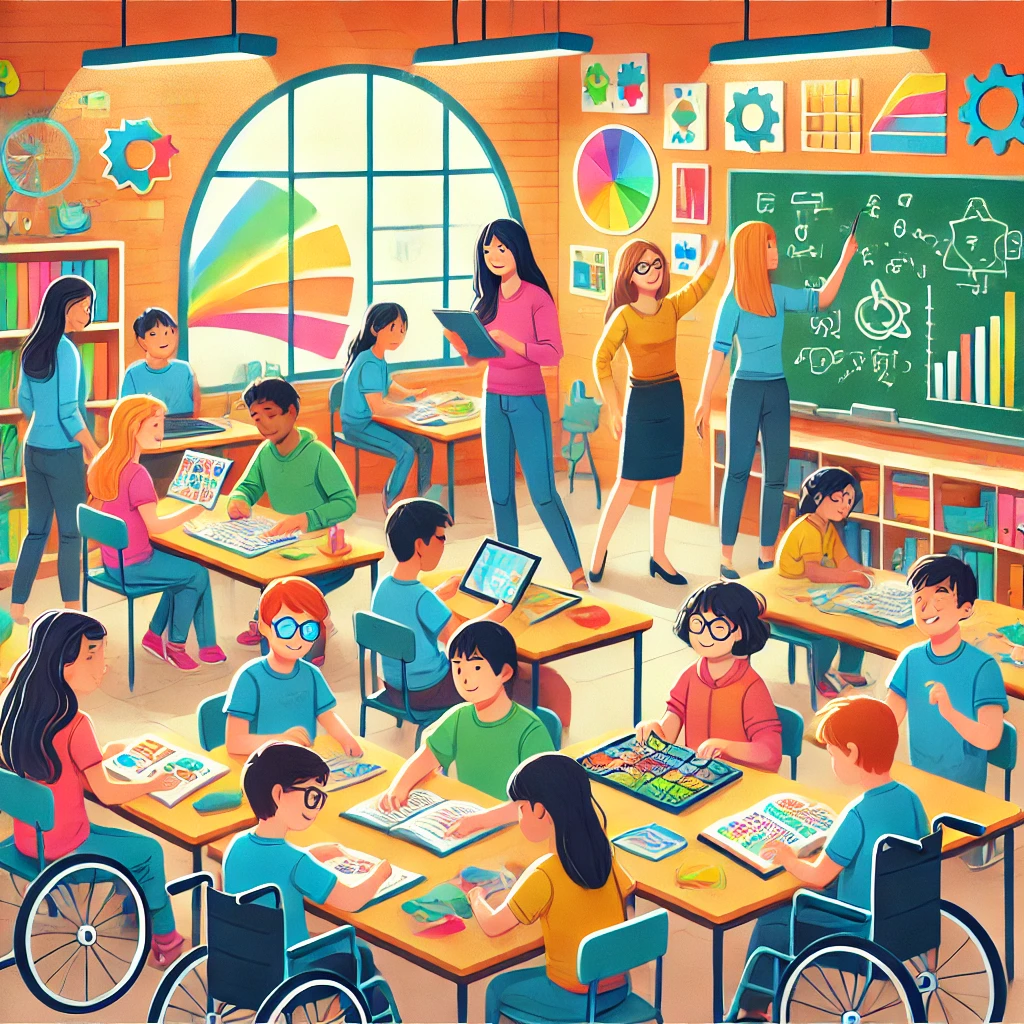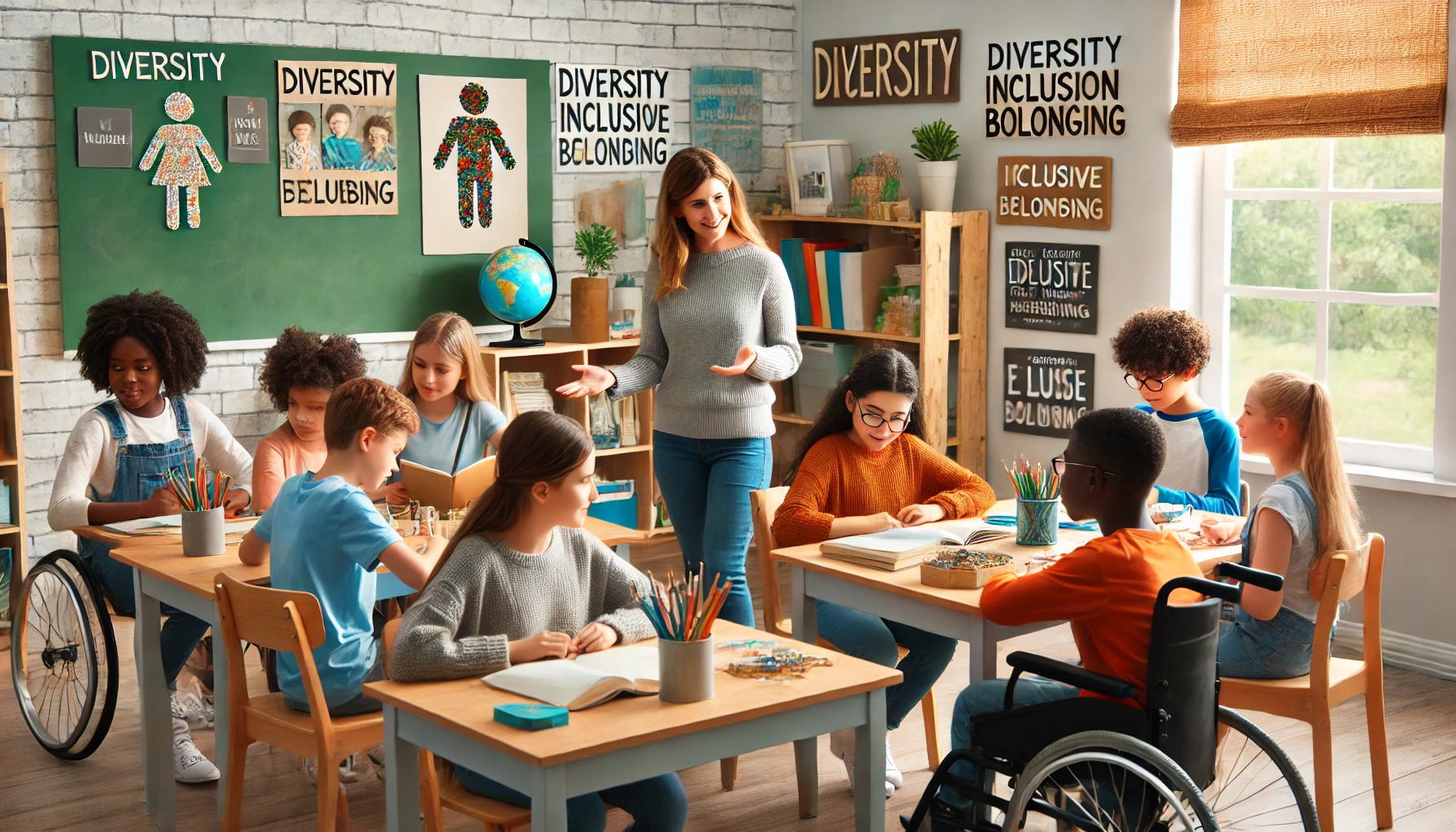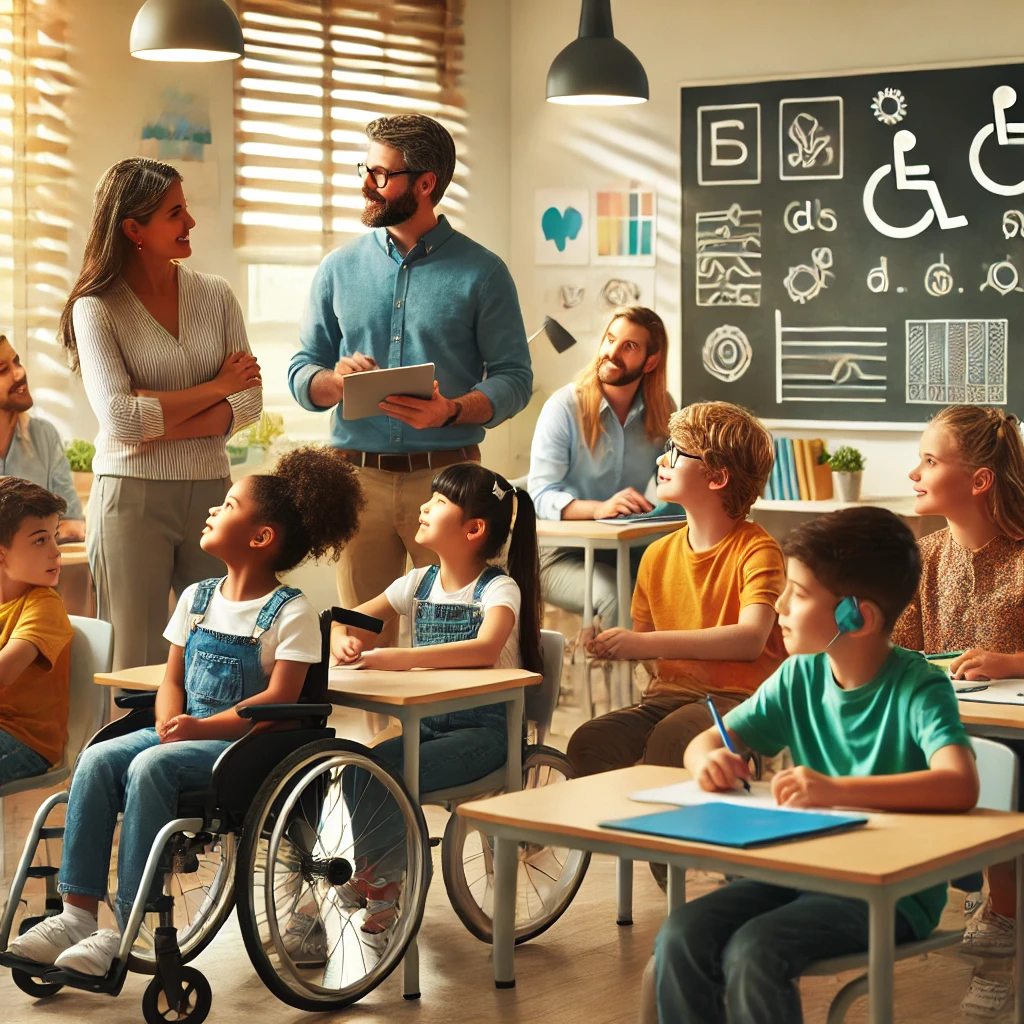Introduction to Language Development Games
“Language development games are revolutionizing how children with special needs learn to communicate. These engaging language development games transform ordinary learning sessions into exciting adventures, making every moment count in a child’s language journey. When carefully chosen, language development games become powerful tools for building essential communication skills.”
Imagine a lively playroom where learning language is as exciting as a game of hide and seek. That’s what I aim for when I say language development games are a game-changer, especially for children with special needs. These games are like the secret sauce you never knew you needed for boosting communication skills and adding a sparkle to their growth journey.
Importance of Language Development for Children with Special Needs
Kids with special needs—whether they’re dealing with autism, ADHD, or learning challenges—face unique hurdles. For them, language isn’t just about words; it’s the bridge to their world. By improving language skills, we’re not just teaching them to speak better, we’re giving them tools to express who they are, their dreams, their humor. This is where language games come into play, offering a smart way to inspire imagination, boost creativity, and spark that critical thinking we love so much.
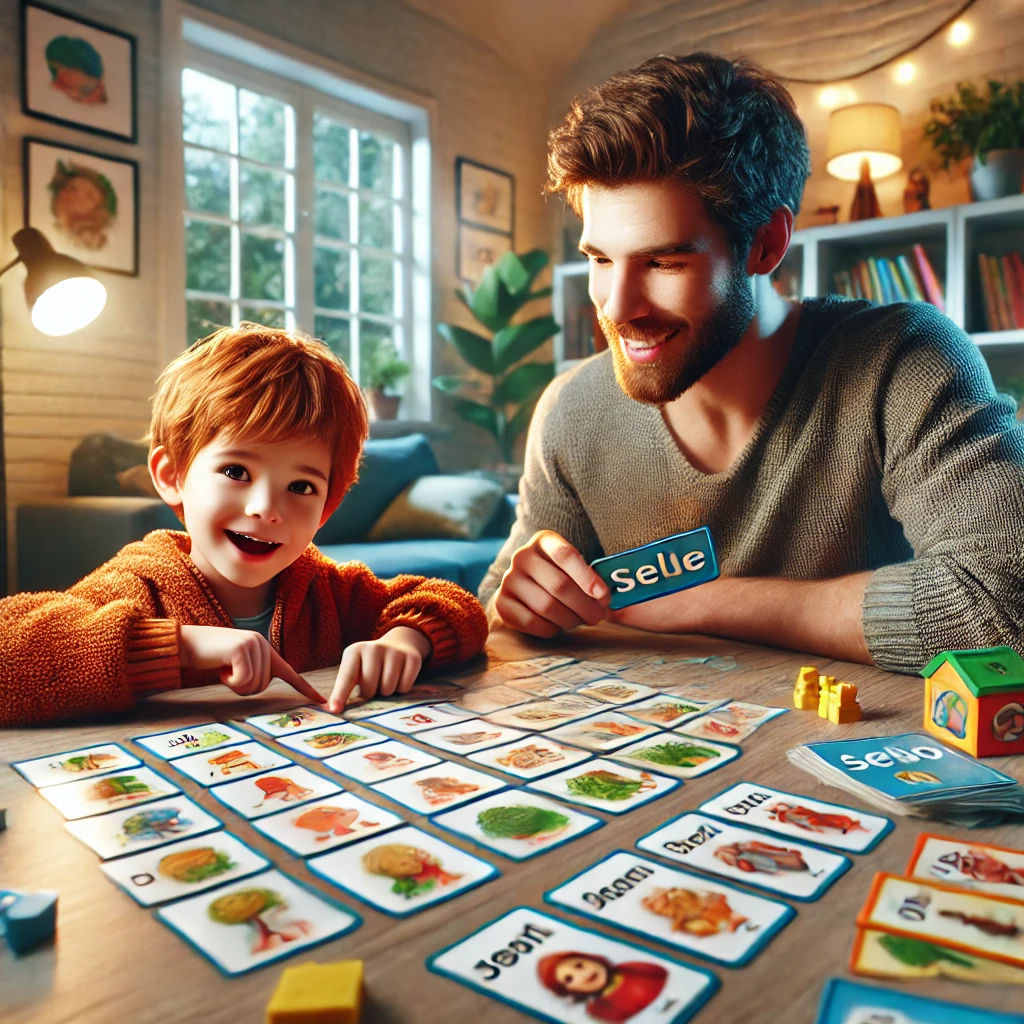
Benefits of Incorporating Language Development Games
- “The power of language development games extends beyond basic communication. These specialised language development games offer multiple benefits:
- Enhance vocabulary through interactive play
- Build confidence in communication
- Develop social skills naturally
- Improve listening and comprehension
- Boost memory and retention”
What’s more fun than a game? These playful methods pack a punch for kids, acting like a friendly coach for their verbal, non-verbal, inner Shakespeare, and budding social butterflies. Games cleverly disguise learning by mixing fun with vocabulary, grammar, and even confidence-building exercises. They’re like the cheerful tutor every kid wants — the one who sets high fives and giggles as a major part of the syllabus. Language games keep things lively, making sure kids stay interested and motivated throughout their learning adventure.
In harnessing the full power of these language adventures, caregivers, teachers, and therapists start to witness the hidden wonders of language games. It’s not just about speaking well, it’s about fostering a playground of creativity and making social connections in a way that feels as natural as playtime. This approach fuels a holistic growth, ensuring kids with special needs build language skills while they’re at their happiest—having fun.
Interactive and Engaging Games
Ah, stepping into the world of language development games! It’s like a buffet of fun for the mind, especially when our goal is to give a boost to kids with special needs. We’re gonna talk about three fun activities: the Word Association Game, Storytelling Games, and Rhyming Games. Hang tight and let’s go!
Word Association Game
Among the most effective language development games are:
- Word Association Activities
- Storytelling Sessions
- Rhyming Challenges Each of these language development games targets different aspects of language learning.”
Imagine the Word Association Game as a mental ping-pong match, perfect for cranking up language skills with a good dose of fun. This game is all about connecting words based on their meanings, sounds, or how they’re related. For our awesome kiddos on the autism spectrum, it’s like a treasure map to vocabulary, brain power, and thinking-on-your-feet skills.
Starting off is easy-peasy. Pick a word, any word, and coax the child to fire back with the first word that pops in their head. This encourages not just chatter but also the kind of thinking that would impress even the pickiest of thinkers. And when you sprinkle in topics they love, it’s like adding chocolate chips to cookies—a surefire way to keep everyone coming back for more.
Storytelling Games
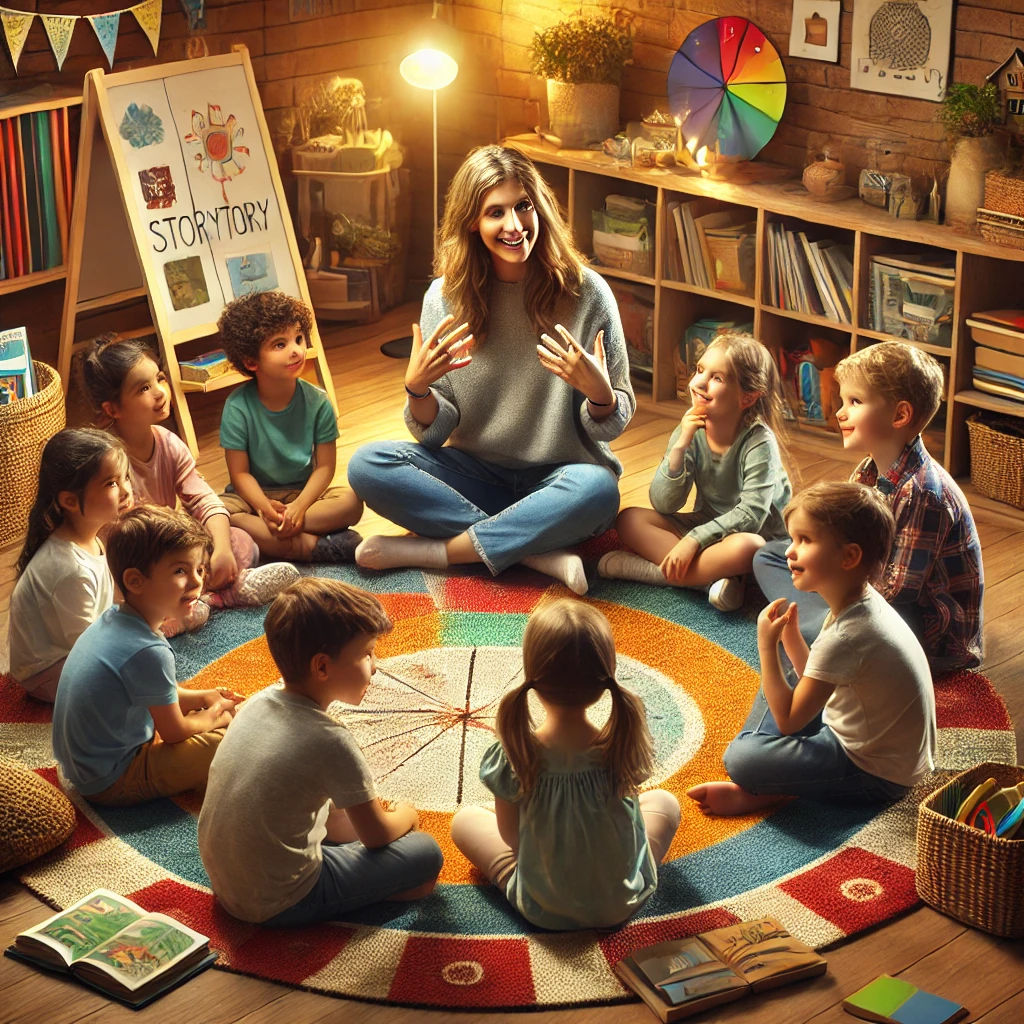
Here, imagination takes the front seat. Storytelling Games provide a stage for children to paint their world with words. These games help kids brush up on their language muscles, tap into a wellspring of creativity, and share their feelings, all wrapped in a friendly story bubble. Kids with ADHD or dyslexia can find comfort here, where they can practice understanding language structure and sequencing through play.
So, how does it roll? Think of it like building a pizza, adding one ingredient (or story detail) at a time with each kid having a go. Characters? Check. Places? Check. Plot twists? Oh, you bet! Visual aids or little nudges can be the game-changers here, steering kids to piece together their ideas like pros.
Rhyming Games
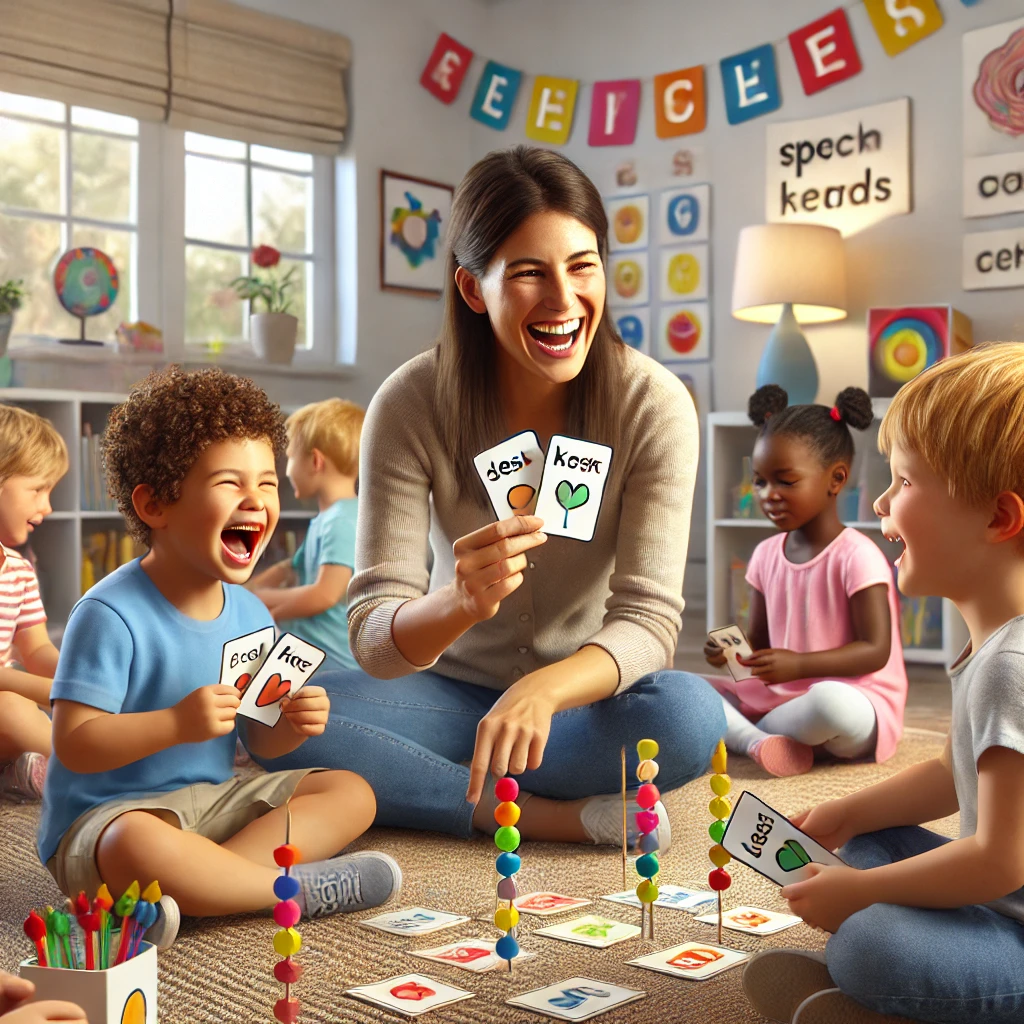
Next stop: Rhyming Games—a merry playground of sounds! These games tickle the ears and help kids catch onto phonological awareness like catching bubbles in a breeze. It’s all about matching words that rhyme or spinning silly rhymes that could make even a stone statue giggle. For kids grappling with speech delays and language quirks, these games can smoothen the path to clearer words and sharper listening.
What’s it all about? Rhyming Games mix and match rhyming words, invite kids to goof off with silly rhymes, or dive headfirst into fun contests. Sprinkle in some rhythm, maybe a catchy song or a goofy rhyming book and you’ve got a party where learning feels like playing the best game ever. These games are more than just neat tricks—they’re little confidence boosters wrapped up in pure fun.
And that’s the heart of it. By weaving these cool language games into the daily grind, parents, caregivers, and educators can cook up an enjoyable learning feast. Kids with special needs get a front-row seat to explore language, making every interaction a chance to grow in a warm and welcoming space. Here’s to cheering them on to thriving in their own special and wonderful ways.
Sensory-Based Language Activities
Choosing the Right Language Development Games When selecting language development games, consider your child’s specific needs and interests. The best language development games are those that:
- Match your child’s current language level
- Offer clear, achievable goals
- Include visual and auditory elements
- Allow for progression as skills improve”
Hey there! If you’re a parent or a teacher working with kiddos who have special needs, sensory-based language activities are like a secret weapon. They sprinkle a bit of fun into learning, making it a lively adventure and not some boring chore. Today, I’ll share a few cool activities: playing with sensory bins using word cards, exploring different textures with imagination, and going on a sound scavenger hunt.
Sensory Bins with Word Cards
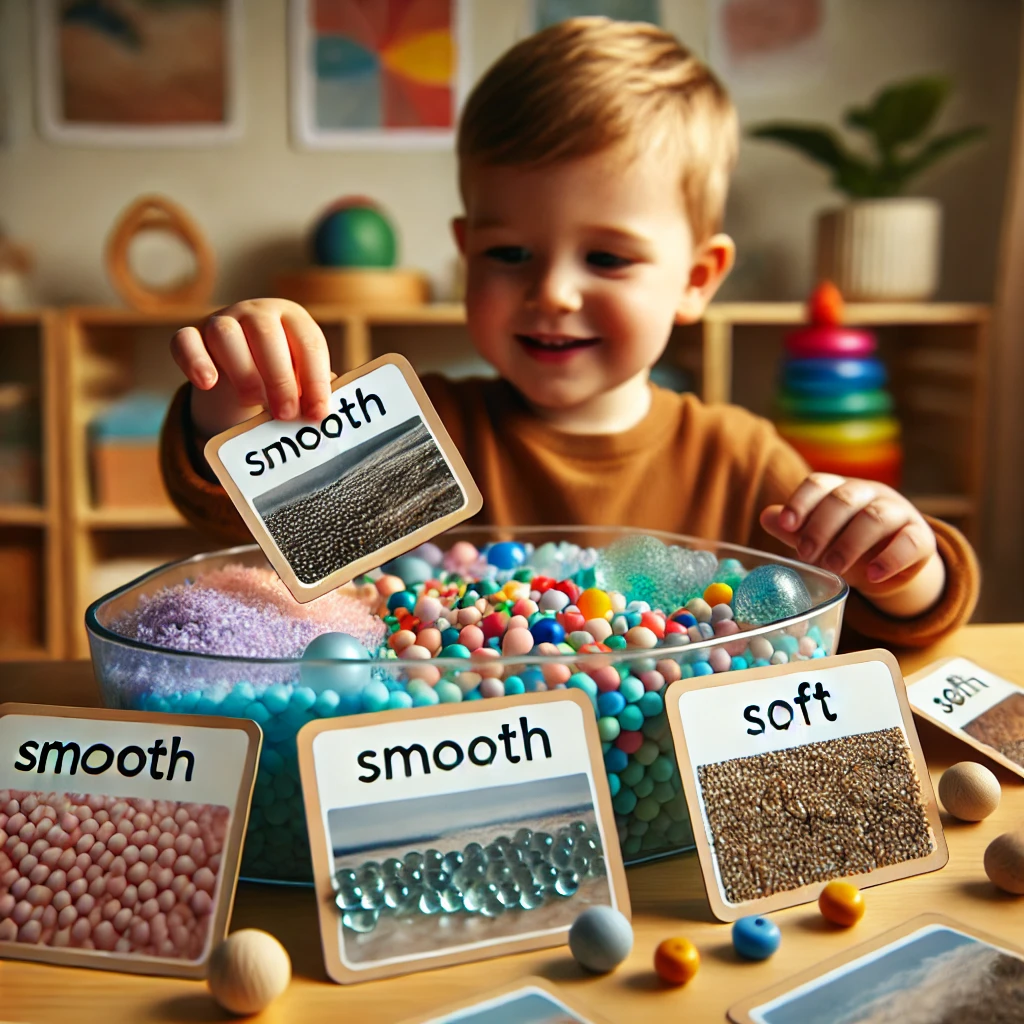
Okay, so sensory bins are basically little treasure chests for kids. They’re stuffed with exciting things like rice, dried beans, or squishy water beads. Now, pair these bins with word cards. When kids dig through, they pick a card and try to match it with what’s inside. It’s like bingo but with a twist—firmly planting those new words in their brain while they have a blast.
Setting one up is easy-peasy. Chuck in some colorful beads or fabrics and throw in those word cards with matching pictures. You can say, “Hey, find the card that says ‘smooth’ and feel which item is smooth in there!” Watch their faces light up as they explore and learn at the same time.
Texture Exploration with Descriptive Language
This one’s all about the feel—literally. When kids get to explore different textures like a furry toy or a bumpy ball, it’s sensory heaven. As they play, they use words like “fluffy,” “slippery,” or “gritty” to make sense of what they feel. It’s like they’re little word detectives uncovering the mysteries of touch, one texture at a time.
You can turn it into a mini science lab—put down soft feathers, sandpaper, plush fabrics, and let them touch away. Encourage them to say something like, “This feels like a cloud” or “This is rough like a tree bark!” Not only does this help build their vocabulary, but it also makes them little storytellers in their sensory world.
Sound Scavenger Hunt
Let’s turn up the volume for this one! A sound scavenger hunt is where kids take their ears on an adventure. Imagine playing a sound like rain falling or a dog barking and asking them to find the matching picture or object. It’s a game that sharpens their listening skills—a huge win for their attention and language Ninja skills!
Grab some fun sound clips from your phone or YouTube, and print some pictures. When you play a sound, they dig through their stash of images to find what matches. It’s thrilling to see them practice identifying sounds, associating them with words, and every correct match feels like they’ve just won the jackpot!
By blending activities like sensory bins with word cards, exploring textures, and engaging sound scavenger hunts, you’re helping kiddos boost their language skills. These activities are fun, sensory-rich, and mentally stimulating, offering a hands-on way to grow and learn without even realizing they’re doing it. So let those senses run wild and watch them soak up new words like a sponge!
Social Language Games
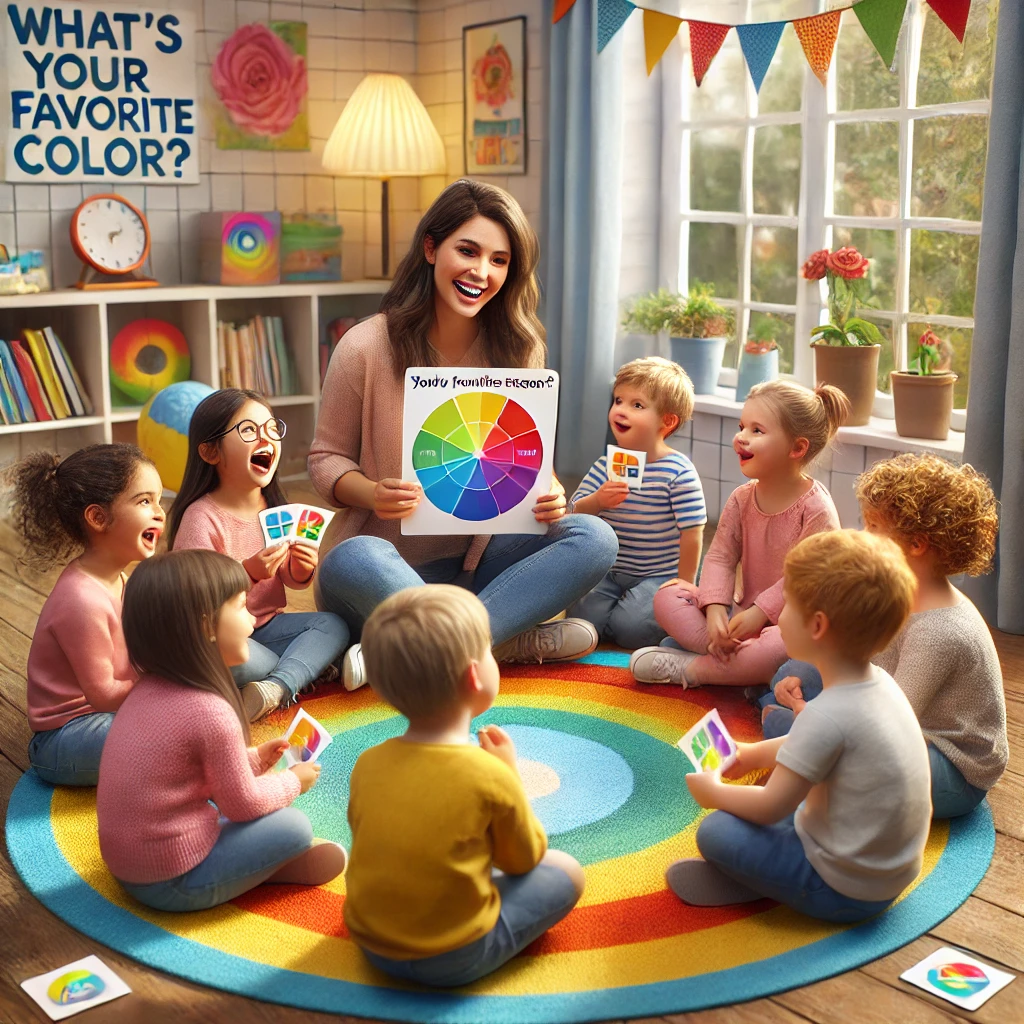
Alright, let’s gab about social language development games and how they’re like secret superheroes for kids with special needs. These aren’t just any games; they’re sneaky agents that help kiddos practice chatting, sharing, and being little show-stealers in group chats.
Turn-Taking Board Games
Turn-taking board games are like the ultimate patience trainers for kids. They make the “wait-your-turn” rule fun and exciting. You’ve got to hang in there, follow the game rules, and sometimes, handle a curve ball or two with a grin.
Take the game “Sequence for Kids,” for example. Kiddos strategics and try to make sequences by placing cards in just the right spot. Meanwhile, they’re soaking up skills like being polite, team playing, and keeping their cool, even if they don’t win every time. It’s like fun on steroids with a side of learning.
Role-Playing Scenarios
Picture this: kids transform into mini actors through role-playing scenarios. This gives them a stage to practice everyday conversations and interactions, all in a place where it’s okay to mess up and learn.
Think about pretending to order at a burger joint or solving a spat with a buddy. These happenings let kids see things from different angles and figure out the best ways to say, “Hey, let’s chat about this,” even when the going gets tough.
Group Conversation Activities
Ever seen kids huddled together, chatting and giggling? Group conversation activities make this magic happen. They turn little ones into active listeners and mighty storytellers. Sharing and talking become second nature.
Try a “Storytelling Circle,” where every kid adds to one wacky storyline. It’s like a comic book coming to life, with each kid as an author. They get a kick out of creativity and collaboration, all while learning how to listen and contribute in harmony.
Mix these board games, role-playing, and group chats into learning times, and you’ve got a recipe for improving kids’ social and language chops in a way that doesn’t feel like homework. Dive into more about supporting our special stars with articles like managing ADHD in the classroom or dyslexia insights and support. Let’s keep the fun rolling!
Movement-Based Language Games
Getting kids involved in movement-based language development games is a surefire way to boost their language skills while keeping the fun factor high. These games don’t just make kids get moving; they also get their language muscles working. Here are a few interactive games that are a blast and beneficial for kiddos with special needs:
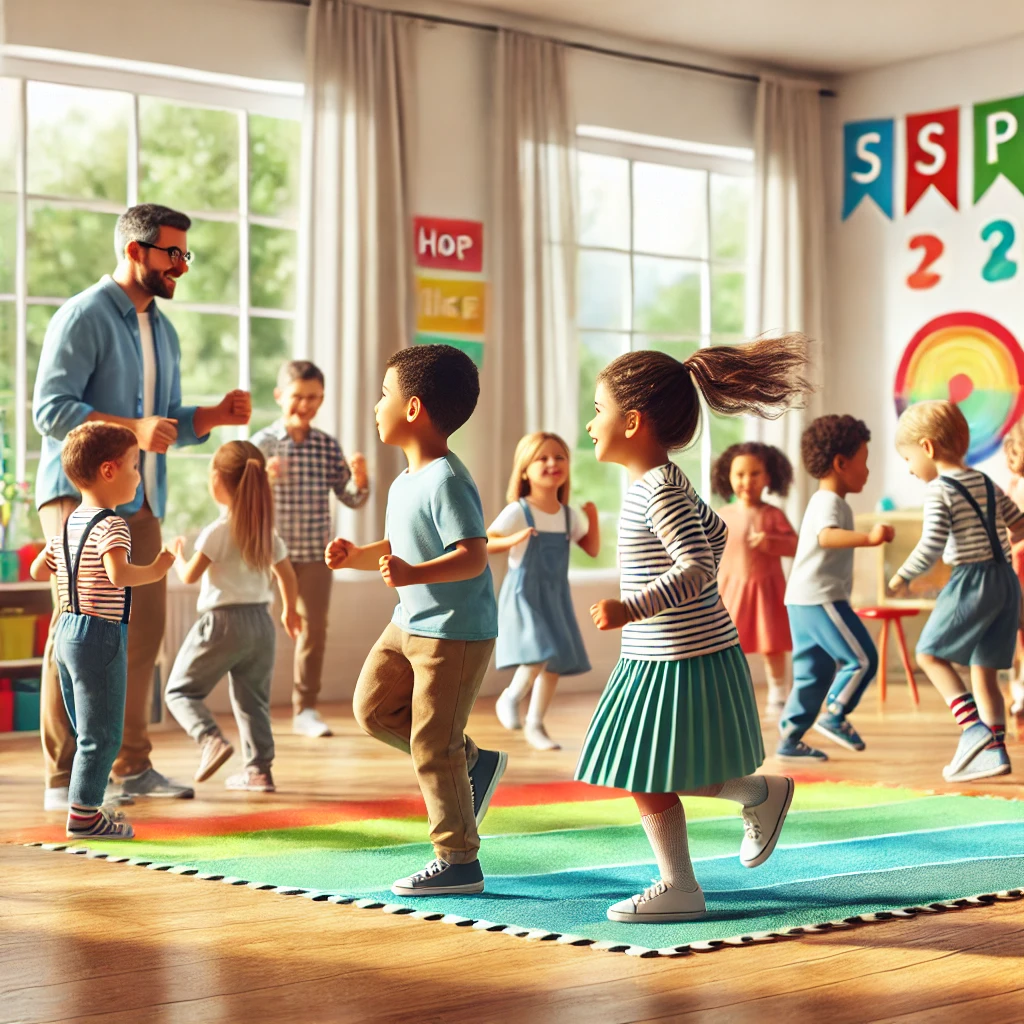
Simon Says with a Twist
Simon Says, an oldie but a goodies, can work wonders for skills with a bit of a twist. By mixing in language challenges like “Simon says touch your nose with your left hand,” kids practice following verbal cues while moving around. This boosts their listening skills, understanding, and vocab memory—and it’s all wrapped up in a little bit of fun.
Alphabet Yoga Poses
Think of alphabet yoga poses as a match between body movement and language learning, where each letter gets its pose. As they spell words or go through the alphabet, kiddos can strike a pose. It’s great for body awareness, coordination, and getting those letters to stick, plus it inspires a bit of creativity. Don’t miss our article on multi-sensory learning techniques for different learning styles to get the full scoop on similar fun activities.
Dance and Match Vocabulary
These dance and vocabulary mash-ups have kids moving in ways that match words they learn. Jumping for “bounce” or tiptoeing for “quiet” brings the words to life. This activity not only fires up language comprehension but also gets creativity and self-expression flowing.
Make these movement-based language games a part of everyday life, and you’ll see parents, caregivers, teachers, and therapists creating a lively learning atmosphere. Through games like Simon Says with a Twist, Alphabet Yoga Poses, and Dance and Match Vocabulary, kids with special needs can polish their language skills while having a blast and keeping active.
Everyday Language Integration
In helping kids with special needs learn to talk, everyday stuff can be a goldmine of chances. Bringing language development games into what we do daily makes talking and understanding more natural. Here’s how you can slide language learning into regular life without turning it into a boring school lecture:
Cooking and Following Instructions
Cooking together is more than just making a mess in the kitchen. It’s a cool way to teach kids both words and skills. With recipes, we get step-by-step action that walks through words for ingredients and cooking moves, plus a shot at listening practice. Ask your kid to say what’s next in the recipe, talk about what they’re tossing into the pot, or throw you a question about what you’re cooking to amp up word skills.
Scavenger Hunt for Descriptive Words
How about a word hunt right in your home or the park? Grab a list of fun describing words, maybe colors, shapes, or textures, and see what your kid spots. Got a red apple? A round ball? They can gather words and use them to describe their finds which boosts both their vocab and their detective skills.
Journaling and Poetry Writing
Urging your little one to write down thoughts or scribble a poem opens doors to both emotion sharing and word play. Give them a journal for their musings or rhymes. Writing poetry lets them mess around with how words sound and work together. When they read their own stuff out loud, it builds speaking chops and gives a boost to their confidence in sharing what’s on their mind.
By weaving in activities like cooking, scavenger hunts, and writing, we stitch together a rich world where kids with special needs can chat and learn in a way that feels real. These fun language chances boost words and talking but also fire up creativity and a love for playing with words. For more on how to help kids with special needs, have a look at our piece on spotting dyslexia early and finding ways to help.
By incorporating these language development games into daily routines, you create natural opportunities for language growth. Remember that the most effective language development games are those that keep children engaged while meeting their unique learning needs.”

